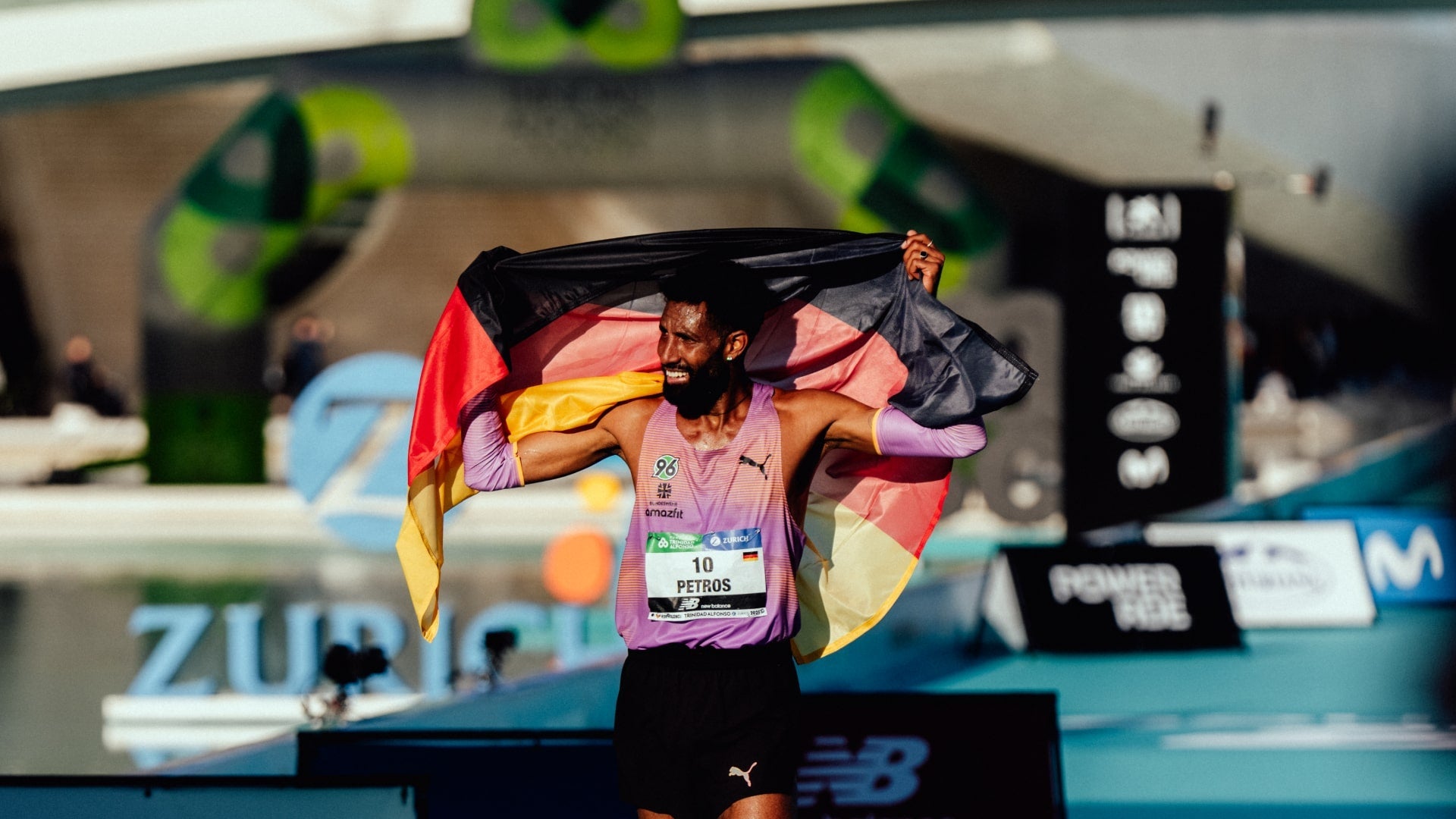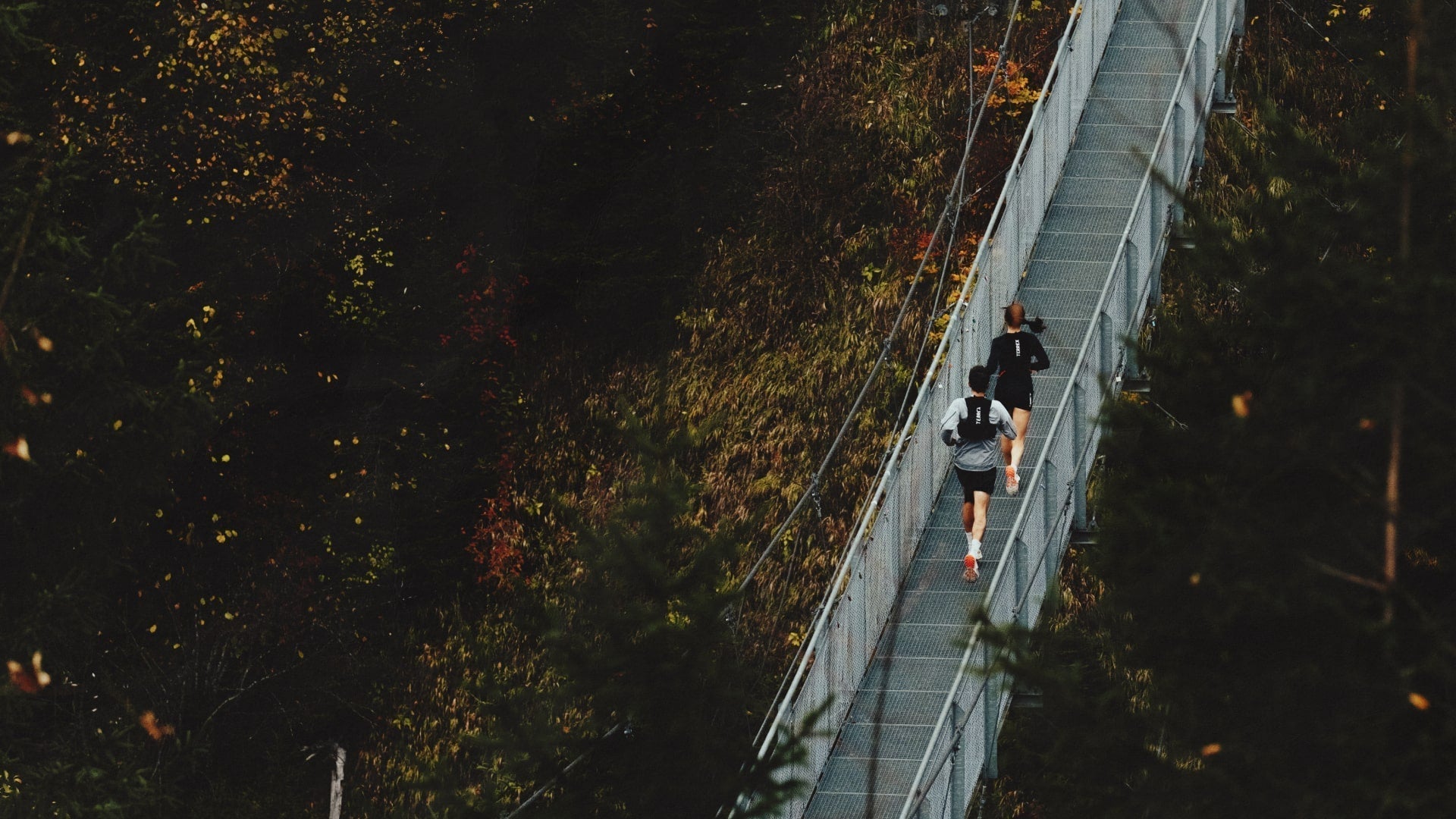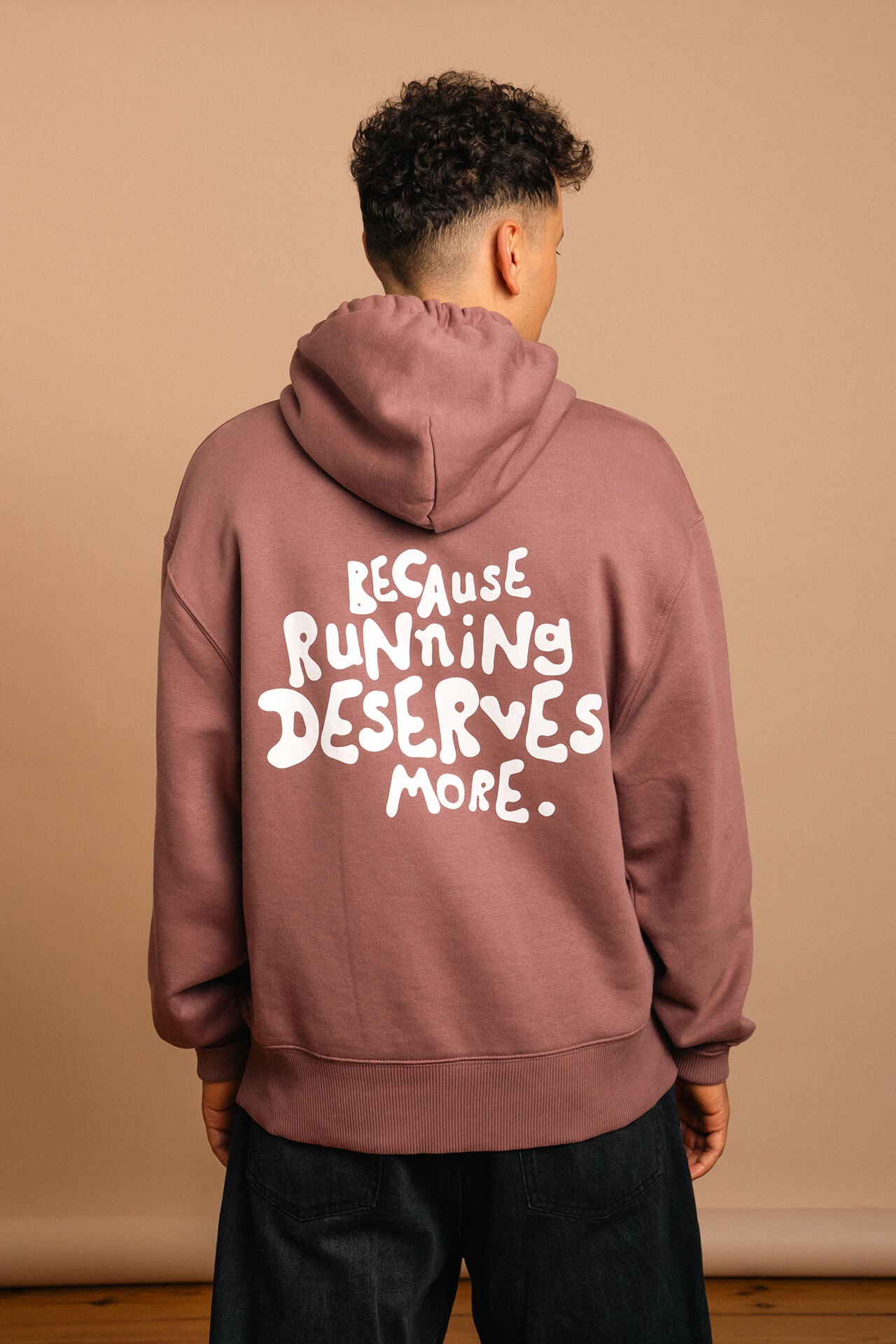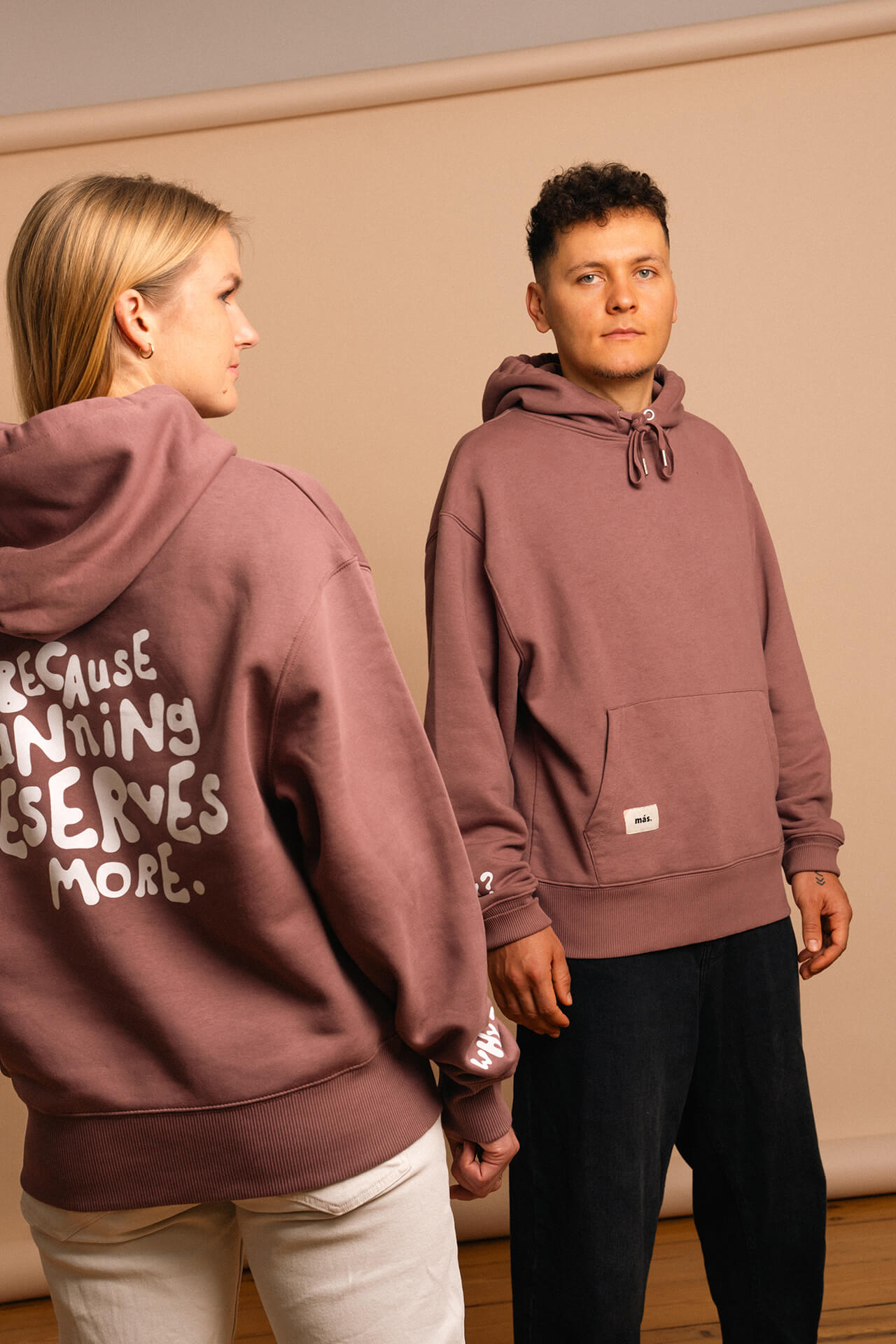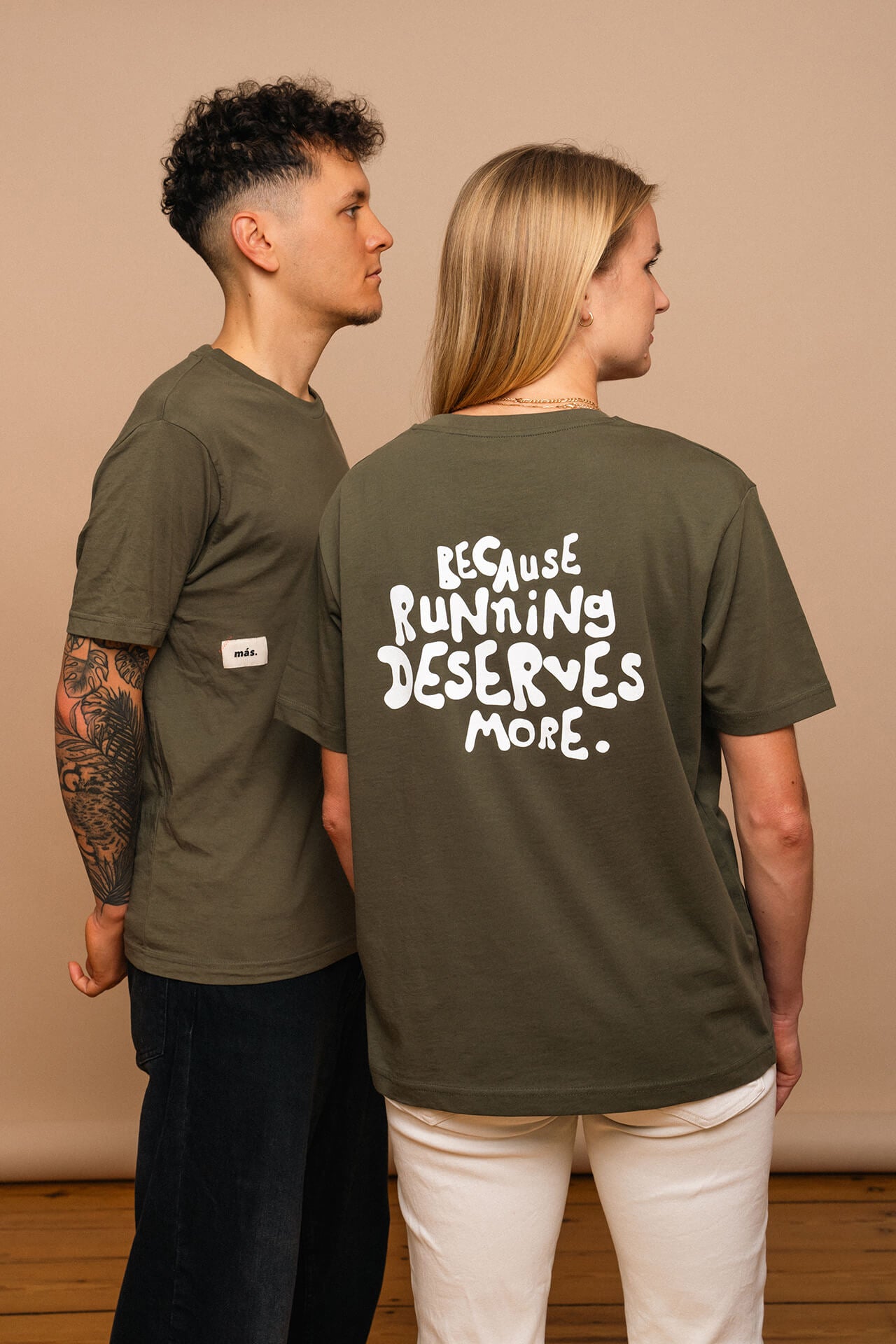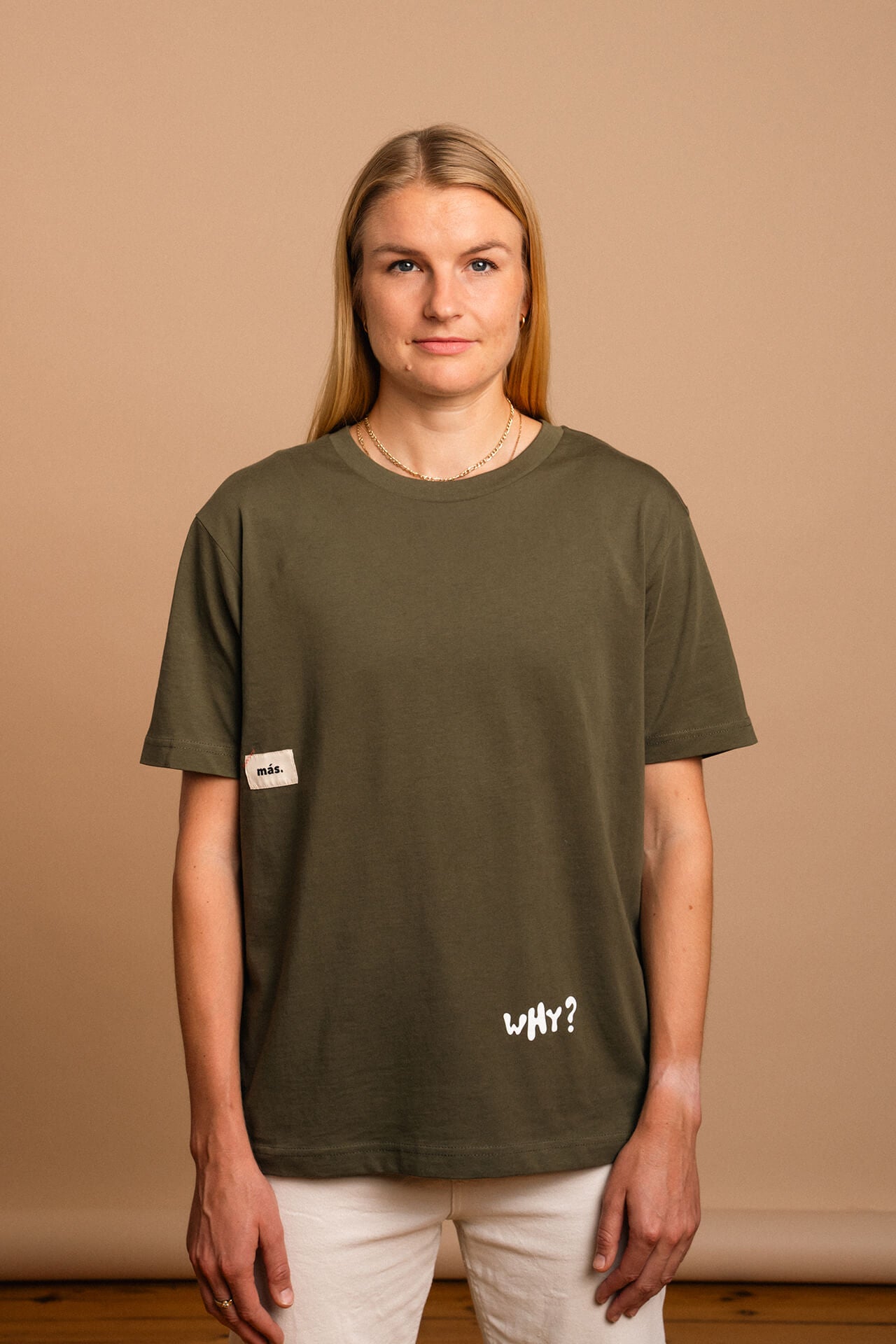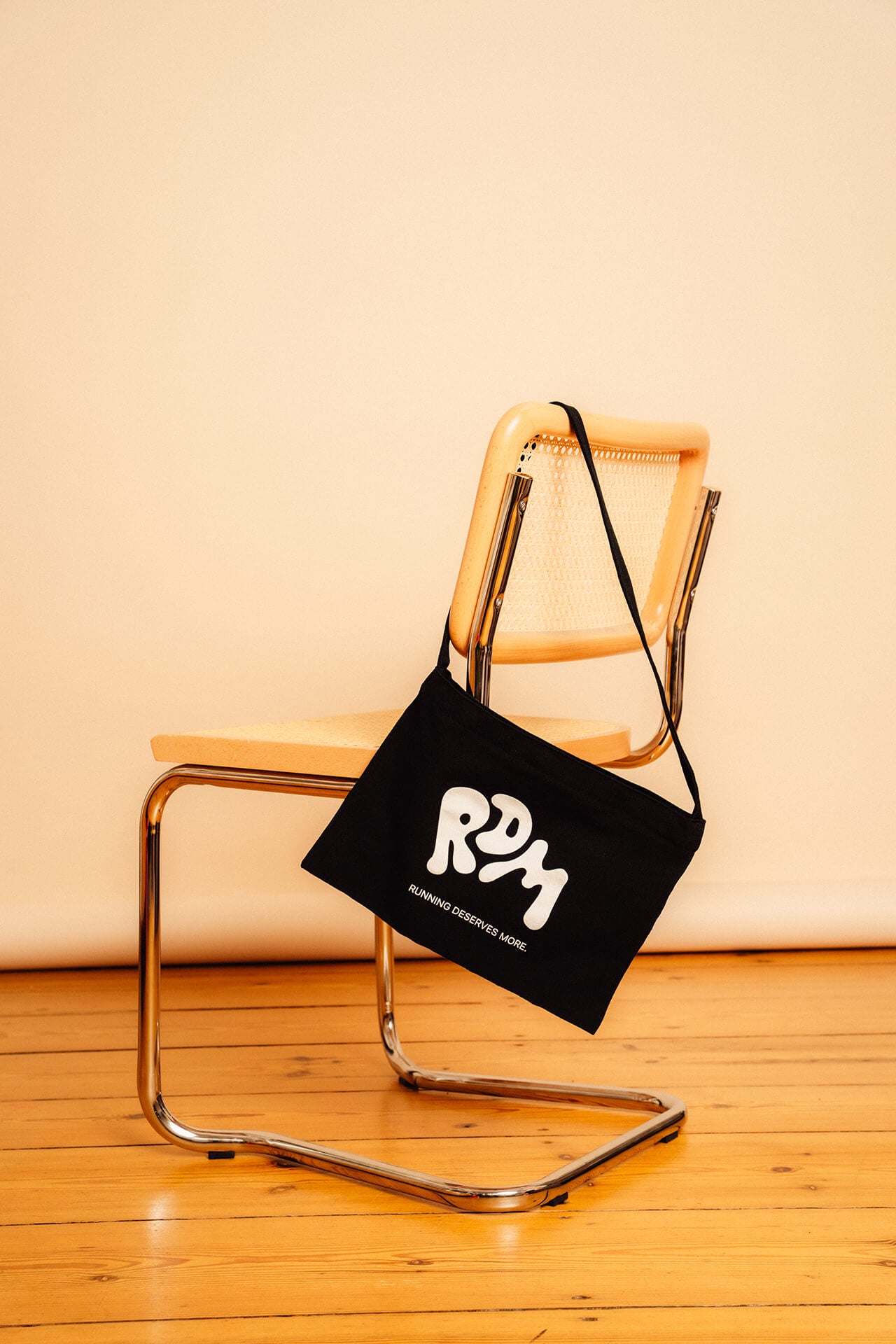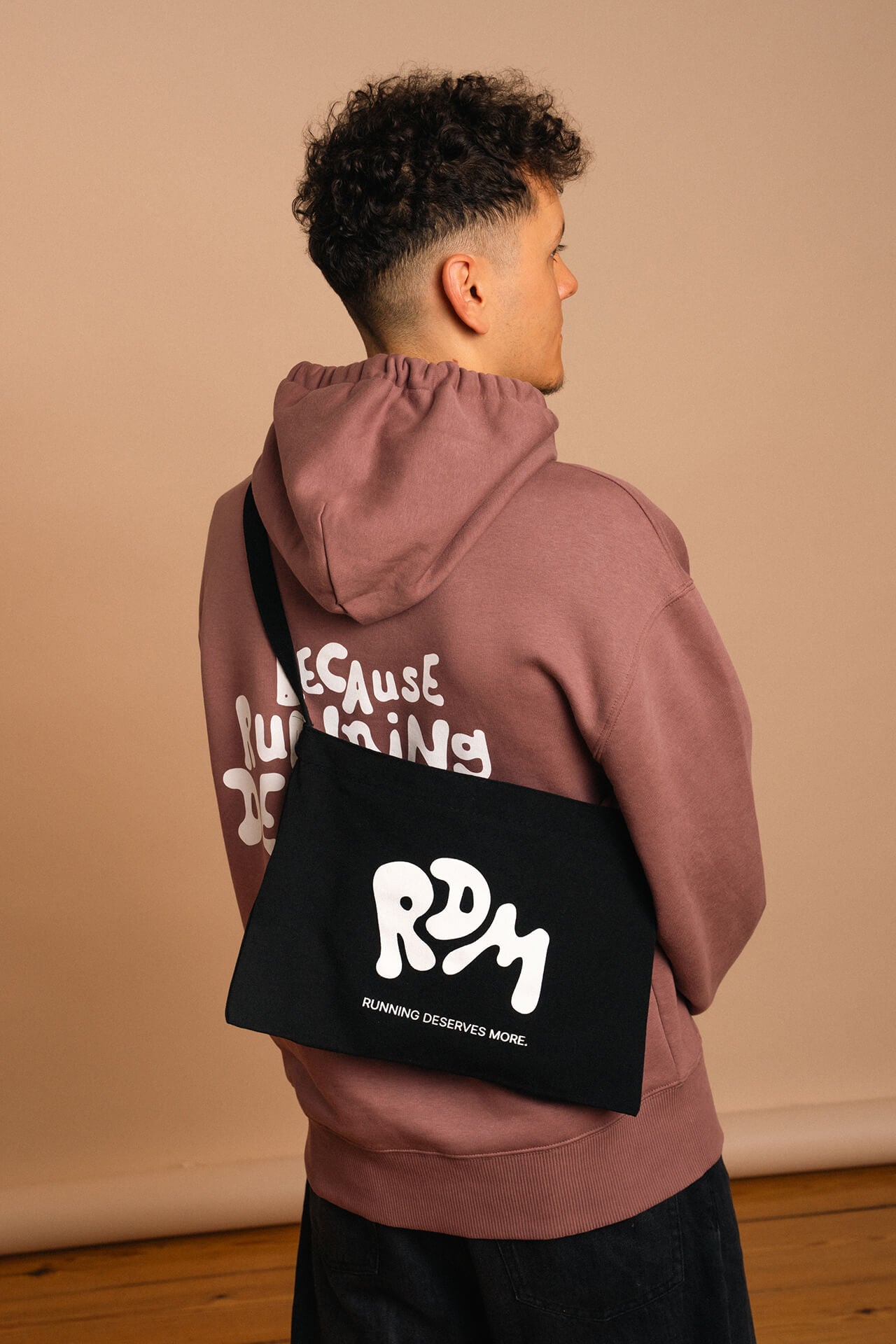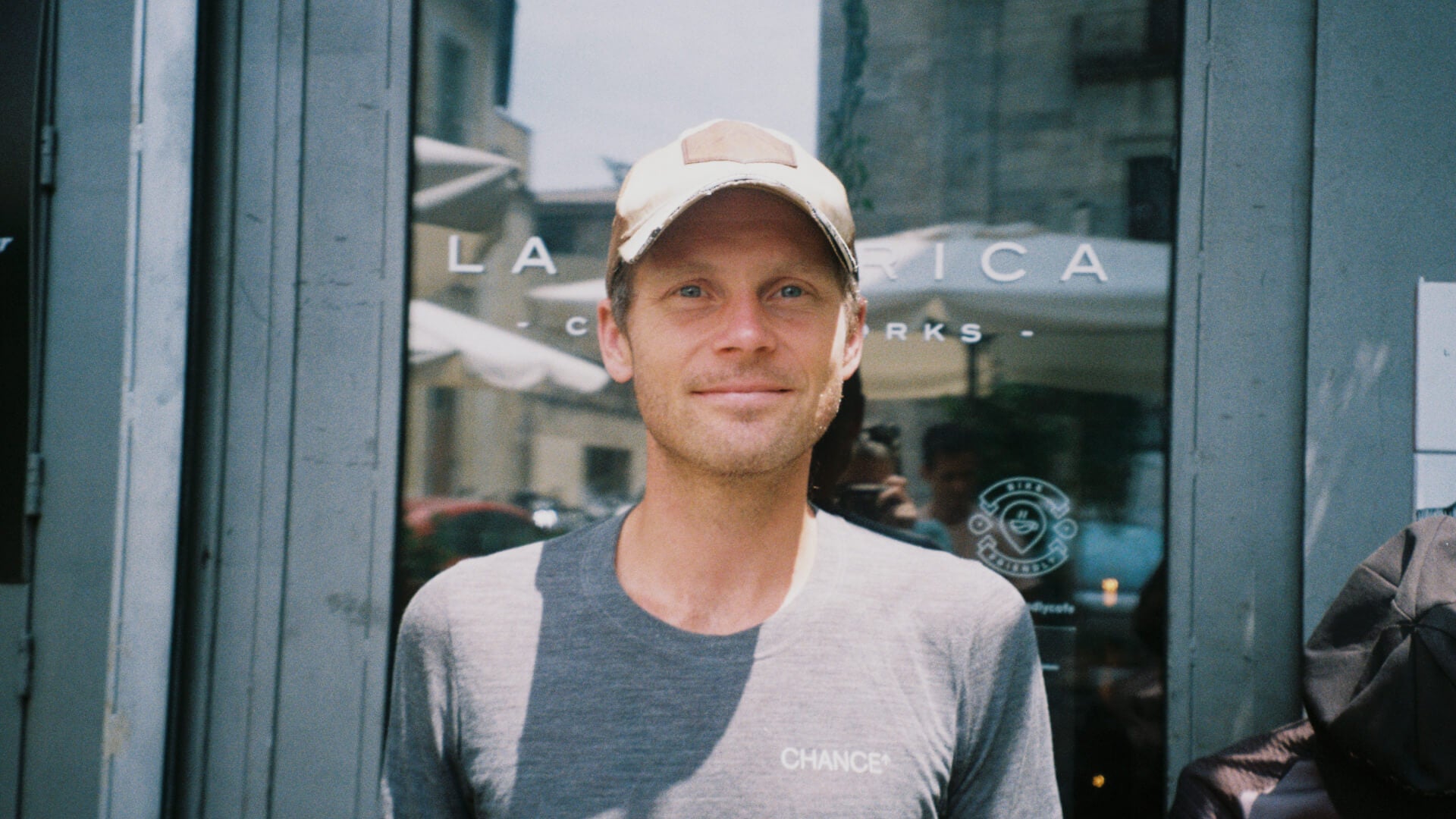
trail runners are just so down to earth and humble people
Former pro-cyclist turned trail runner a couple years ago, Christian Meier, just broke the tape for the very first time in a running event. We met the Canadian in his café "La Fabrica" in Girona to talk about training, the mental game and the magic of trail running.

más. Coffee Talk mit Christian Meier
Former professional cyclist, now entrepreneur and trail runner. Lives his dream in Girona between sports, coffee and community. Also co-founder of @overlandrunningprovisions @chancerunning @lafabricagirona @espressomafia
Instagram: @christianmmeier
“You can always see a trail runner after his race because he is moving funny”, says Christian Meier. The Canadian trail runner won his first ever run by finishing first at the Andorra 50K by UTMB at the end of June. Now he is back to his base in Girona, Spain and back to training, “building blocks for goals later in the season”, as he tells más. Meier started his athletic career as a professional cyclist. After he retired a few years ago, he discovered trail running and from what he tells más, it was love at first sight. In his journey of becoming a successful trail runner, his cycling career played a very important role.

Björn (más): What was the feeling after winning the Andorra 50K?
Christian: It was the first time I won a running race of any kind. You have a lot of emotions. It was a little bit strange. You never know a race is finished until it is finished. There is always that part, where you are in the front, you are leading. It's a bit difficult in trail races to know where the people behind you are in terms of splits. That weekend there was the 50 kilometer race and the 100 kilometer race. For the last 20 kilometers of the 50K we shared it with the 100K. So you're always kind of around people. I knew I had a gap, but there is always that part at the end where you are wondering and second guessing. Are they coming?
You need to keep having confidence in yourself and what you're doing. And then on that day when everything sort of just comes together and you kind of nail everything, like you nail your nutrition, you nail your hydration, your pacing – it's just such an amazing feeling. To come down the finishing line and grab the tape – it's a very fulfilling feeling.

Is it unique for trail running, that everything needs to come together otherwise the race won’t work? You were a cyclist before, is it anything like that?
It's probably a little bit more like cycling in that sense. There are just so many variables, because you've got different terrain. You've got technical terrain, uphill, downhill, weather conditions or like in my race – mechanical issues.
On the weekend I broke a pole. When you use your poles for the really steep sections and then you break one, it's kind of like having a flat tire when cycling. These are variables that you don't know before, that can kind of sneak up and come out. You need to be able to problem solve and deal with situations and not look at it as such a big set back. You always have this mentality: You fight the whole way. Because in trail running, especially when you get to the longer distances, it’s really not over until it's over. People can have their own problems later. There is always a chance to come back.
Before you became a trail runner you were a pro cyclist. It seems like you’re a natural when it comes to endurance sports.
I had passion, I didn't have talent. Cycling wasn't really on my radar. I saw a magazine once in a bookshop, a mountain bike magazine. I just thought, these mountain bikes look so cool, wow, this is so amazing. I bought that magazine and I just kept reading it and reading it and reading it. Finally, I convinced my parents to let me buy a mountain bike and then I just fell in love with the sport. I fell in love with the training and how you can push your limits. I grew up on a farm. My parents are both German who immigrated to Canada. From a young age we were working on the farm like crazy. Three or four hours of cycling is so easy compared to doing the whole day of working on the farm.
What was your biggest success in cycling?
When I was young, I just wanted to ride my bike every single day, being out there riding in the mountains. I thought the best way to do that was to become a professional. But then you understand that there has to be a performance aspect with it. Because to be professional, you have to win races, you have to have results. I have moments in cycling that I'm super proud of: I was Canadian Champion over time across most disciplines over my ages. But definitely the highlight was doing the Tour de France, because making a Tour team is so difficult.


How did you grow into trail running?
After I retired from road cycling, I started doing quite a lot of gravel cycling and also doing these sort of bike packing events. Kind of adventurous stuff that I really enjoyed. But there were also many things that I didn't enjoy. When I got into trail running - immediately, I was drawn to ultra distance. Mostly through the inspirations of UTMB and seeing films and videos about this iconic race in Chamonix. They were running 100 miles in the mountains through the night. And it was just like, holy cow.
Some guys are running it super fast and some guys are earning it over two days. But everybody is facing the same challenge and everybody has the same apprehensions. Everybody is nervous, everybody is feeling like, am I gonna make it? The energy is so strong.
You’re planning to race the 145K race in a few weeks at the UTMB. How does a typical training week look like for you?
I wouldn't say that ultra runners do a lot more volume than a marathon runner would. It might be geared slightly differently. For example, using poles: on the big long climbs, the steep ones, you're power hiking. So you have to develop these kinds of techniques downhill. Also, about as much as you're running uphill, you're running downhill. That is a lot of resistance to build in your muscles.
In a quite serious training period, I run between 140 and 160 kilometers per week, which equals to between 14 and 17 hours, depending on the amount of vertical. I only do one session per week on the flat and then the rest is all done in the hills.
What would be the longest run that you do in training?
I don't do super long stuff, three to four hours. I have noticed that for me, doubles work really well to build the volume. It allows you to have really good consistency the whole week. Doing a six hour run in one day means you're probably going to suffer a bit in the next two days.

What was the most challenging and the most beautiful race for you so far?
The most challenging probably was last year at the CCC, which is the 100K race at UTMB. Last summer, I had Long Covid and I didn't really realize it for three to four months. The CCC was one month after I finally got better. But then when the race started, after 30 kilometers, I started cramping in both my hamstrings. That day I was like, I am getting to the finish no matter what. So it was like 70 kilometers of jogging and walking and going slow and just suffering.
The most beautiful? That's a tough one. The thing about trail running is, you're always in the mountains. In road running you’re probably more enjoying the experience before and after, than during the race. In trail running, these races are held in some of the most iconic mountain regions in the world. I would really struggle to pick one.
Do you try to distract yourself with the scenery when running? What’s going on in your head when you are on a 100K?
It can be this roller coaster of emotions during the race. I recently tended to fall more into a performance mindset, where you have a rotation going on in your mind. It’s a checklist: eating, drinking, eating, drinking and checking your heart rate. When you're climbing with poles, it's very rhythmic, one-two, one-two. If I can get into a very monotonous, boring routine in my mind, it just kind of clicks.
So the 145K is your next race, what comes after that?
Having not run for that long - it’s my third year - there's still so much to do. A lot of the races I want to do are driven by emotion, things that just excite me. The TDS [Sur les Traces des Ducs de Savoie] is one of those for me. I don't know why, but it fuels me to do it. Time wise, it will probably be close to double my longest race so far. It's quite unknown and it feels more of an adventure than it does as a performance race.

"What I like so much about trail is that it's such an approachable sport. I find the trail runners are generally just so down to earth and humble people."
Who or what inspires you?
There were moments that really inspired me. When I started, there were a few videos that were on YouTube, back in 2015, that kind of era. There was a really cool film when Nike had a trail team of Americans like Zach Miller. They came to Europe to do UTMB. That was really cool because it was kind of a raw story and I think they did quite well.
Another one is local runner Núria Picas. She's kind of a legend. She won the UTMB and I remember watching that film of her winning. When she won, she was so emotional about winning.
And then I've been fortunate to meet some really good people. What I like so much about trail is that it's such an approachable sport. I find the trail runners are generally just so down to earth and humble people. A lot of them still work another job, it just kind of keeps them down to earth.
Thanks for the chat!


